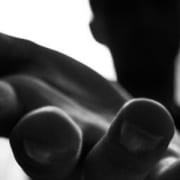“Whatever your task, put yourself into it, as done for the Lord and not for people, since you know that from the Lord you will receive the inheritance as your reward; you serve the Lord Christ.”
— Colossians [3:23]–24
BELAY AND WORKING FOR THE LORD
In early 2017, I sat at my desk frustrated with the results of my efforts to find quality help in finishing my book and getting my website started, along with my Christian advisory services. It wasn’t that the work being completed was poor in quality; my frustration was that it didn’t have that extra effort. The work given to me was lacking the zeal of commitment. In spite of my willingness to give people the creativity to complete tasks as if they were their own, their work lacked the added value that makes things great.
My goal wasn’t to be good, but to produce the best. While I knew where I was going, I didn’t have the ability to be the best I could be without help. I decided to scrap all my plans and start over. I began by searching the Internet with a stronger focus and looking for Christian-based help. There I found my answer, a Christian-based business called BELAY. They had all the resources I needed to get my website fixed, an assistant to help, and people who desired to be the best.
At first I was skeptical, even stating to my BELAY contacts, Lucy and Meg, “I am used to great performers after working for many years with top companies like Foot Locker and Yankee Candle. Can you achieve this standard?” They didn’t reply with heavy salesperson talk. They replied with a thoughtful plan. A plan that produced in six weeks a world-class website, an assistant that was as strong as I had experienced in my previous jobs, and a direction that gave me hope that I was going to be successful.
“We don’t just work, we work for the Lord.”
What was the difference? My new assistant from BELAY, Kristina, explained it to me one day. “We don’t just work, we work for the Lord.” A simple explanation that spoke volumes. Instead of just getting work done, I noticed a warm assertiveness that insisted on doing things the right way. Polite and firm help that raised our level of performance. I noticed that they understood what I wanted, as a Christian author and advisor, even when it was still vague to me.
As we were approaching the launch date for the new website, I noticed an extra effort. Things I hadn’t thought of got done without my asking. E-mails from Kristina and Erica, the webmaster, would appear at one in the morning and later that day at five in the morning. Things got done. They were working for the Lord Christ.
“Each day I am inspired, because I work with great people…those committed to not just doing the job, but working for our Lord Christ.”
Later, as I was looking for an editor, I applied the same thought, “Find a devoted Christian.” I did, Richard Willett, who edited my manuscript in half the time others had quoted. Changes in my writing were made that improved it without fanfare. The publisher of my book, Jesus and Co., upon receiving the manuscript expressed high satisfaction in the editor’s work.
Each day I am inspired, because I work with great people. My answer was on the Internet, in the form of Jesus and those committed to not just doing the job, but working for our Lord Christ.
Blessings, until next time,
Bruce L. Hartman
PARTING THOUGHTS
Do we work as if we are working for Jesus?
Why is Jesus the difference in our mindsets?
Are there areas in our work today where we could go from good to great?










